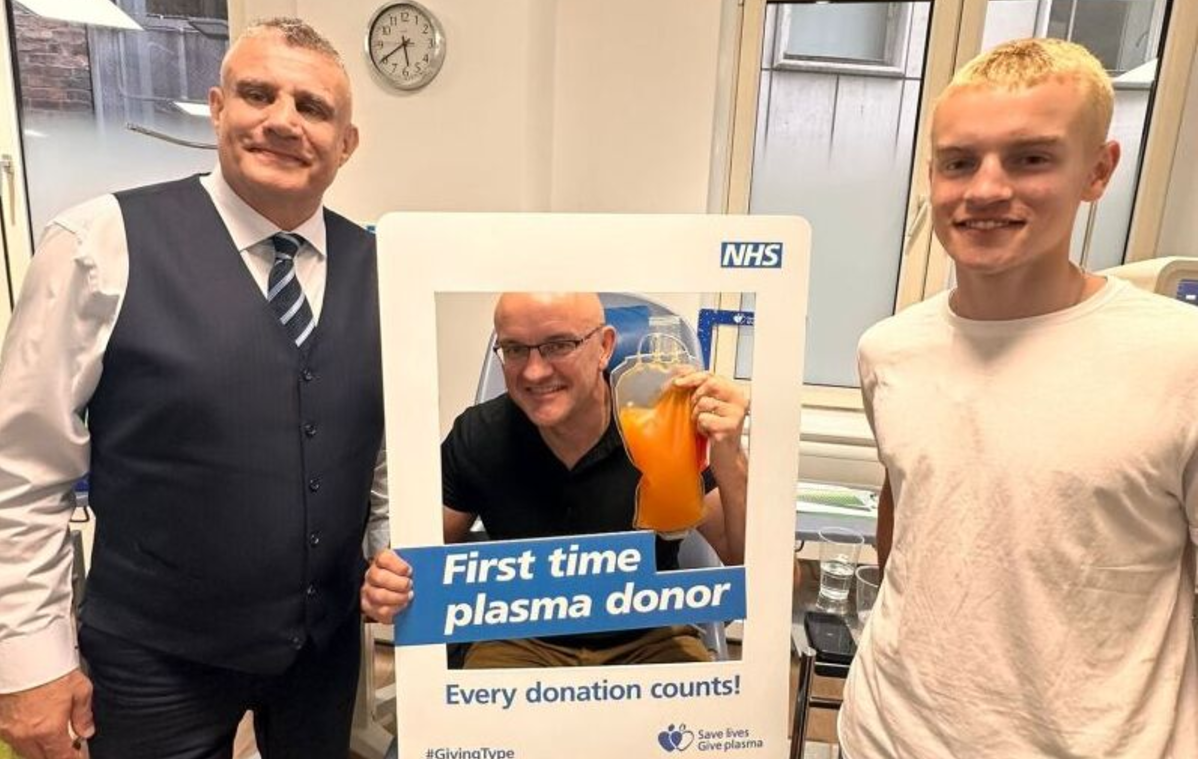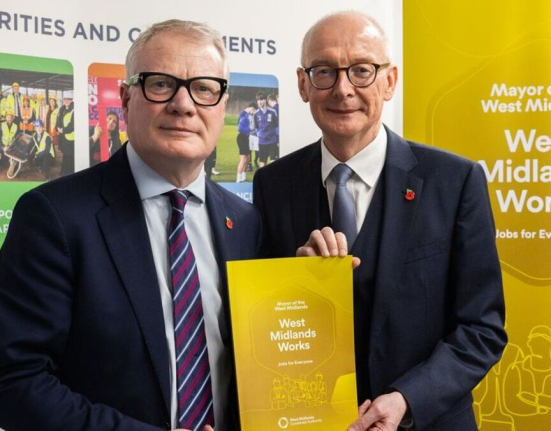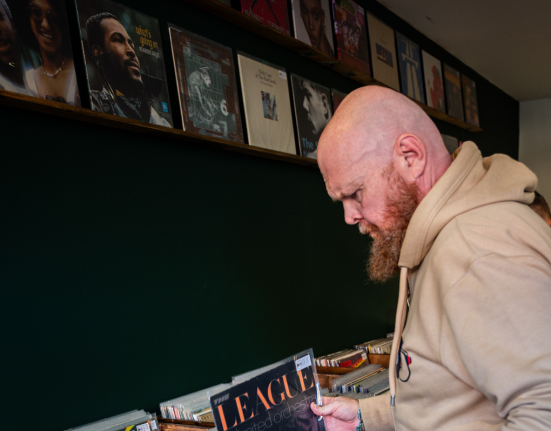West Midlands business leader Professor Paul Cadman is preaching the gospel of “liquid gold” as he leads an ever-growing tribe of friends, business contacts and colleagues to give blood plasma.
Among those who have recently made their way to the NHS Plasma Donor Centre on New Street, Birmingham, to donate for the first time are Phil Upton, the BBC Radio presenter, Simon Evans, Brum-based PR consultant and editor of WM News, and Mike Hammond, CEO of University Hospitals Birmingham Charity.
Arabella Archer, exec assistant to the board at Birmingham City Football Club, is another contact of Cadman’s to recently donate blood plasma for the first time.
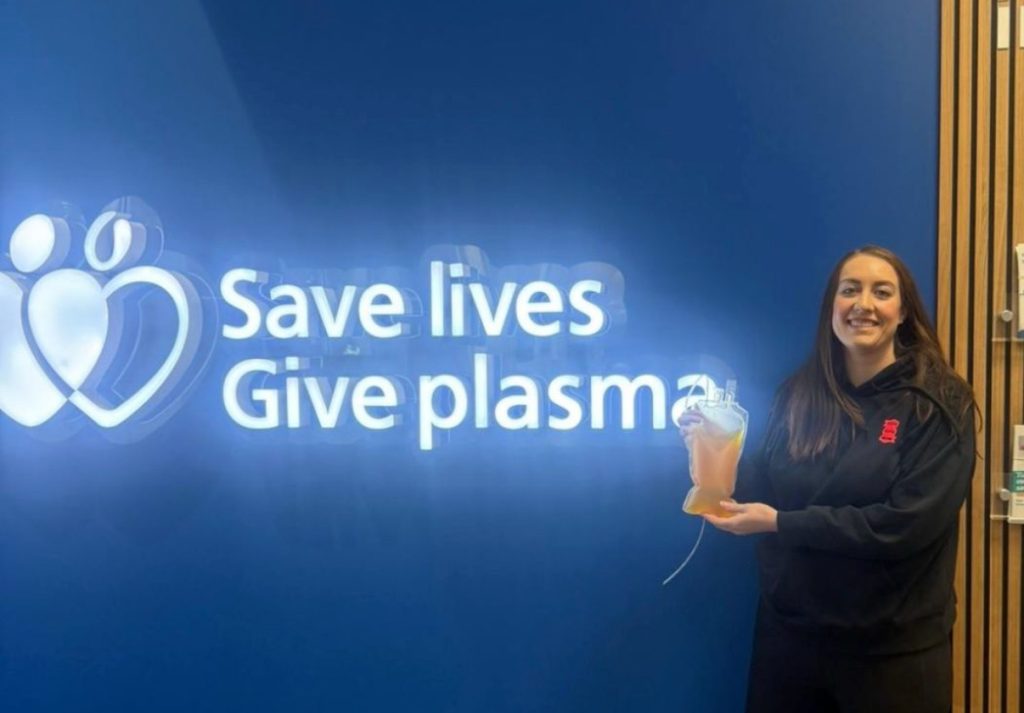
Cadman, who recently made his 200th donation, said of Arabella’s debut: “Massive congratulations to Arabella Archer on making her first plasma donation at the Birmingham Donor Centre. Such a selfless act that could help save lives – and it’s only the beginning. Arabella, I’m genuinely proud of you. Taking that first step isn’t always easy, but you did it with heart and purpose.”
Overcoming the squeam demons
Evans said after making his first donation: “While I’m chuffed to have donated once, Paul has done it 200 times, which is what inspired me to do it.”
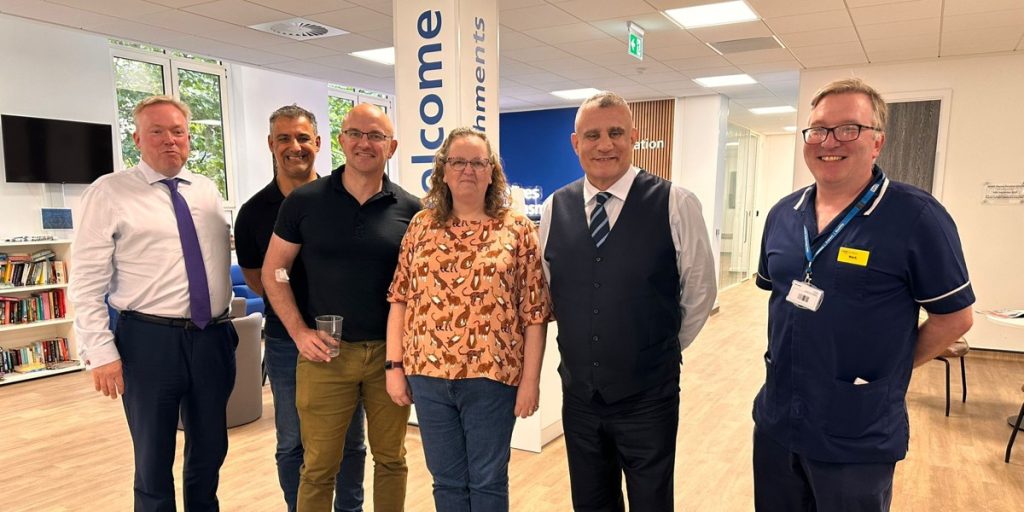
And there are more Cadman plasma disciples being recruited all the time, notably Al Carns, Veterans and People Minister and MP for Birmingham Selly Oak, who is booked in for his first donation later this month.
Carns is no stranger to selfless acts to helps others, having recently scaled Mt Everest in record time (London-summit-London in six and a half days) to raise funds for vets’ charities, so Cadman’s call to roll up his sleeve was not a hard sell.

Liquid gold
Plasma – a substance known as ‘liquid gold’ due to its life-saving properties – is the part of human blood that carries platelets, red blood cells and white blood cells around the body.
Donated plasma builds the recipient’s antibodies and can be used, for example, to support cancer treatments, protect pregnancies and help babies’ hearts to continue to beat.
It makes up approximately 55% of a person’s blood and contains infection-fighting antibodies known as immunoglobulins, which are made into medicines to help people with rare diseases, immune disorders and genetic conditions.
More people giving plasma means more lives saved
Paul, CEO of Starting Point Recruitment and the One Thousand Trades Group, said: “I’m blessed to be in good enough health to be able to give blood plasma. I’ve been doing it for the past four decades, following the lead of my dad, Ron, who gave blood religiously his whole life.
“If other people are following my lead and giving plasma too, then that’s brilliant. It means more people who desperately need plasma are going to be kept alive and helped. There’s no better feeling than knowing that.”
Unlike donated blood, donated plasma does not have to be matched to the recipient’s blood type.
Donors can give plasma every two weeks, and NHS Blood and Transplant is calling for more people to come forward.
Plasma donation takes around 35 minutes. The process involves taking blood out of a vein and removing the plasma from it before returning it into the vein.

